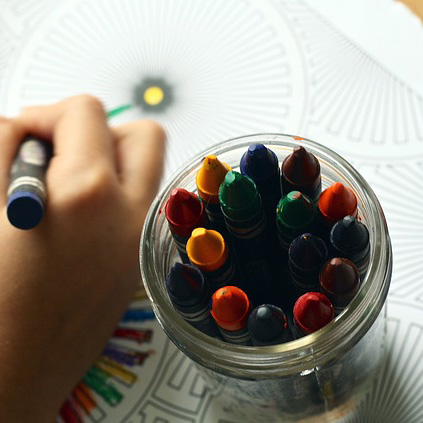
To investigate whether nutrition plays a role in inhibitory control and executive functioning early in life, we collected data on behavior using a variety of different tasks (see previous blog). To perform these tasks, we chose to visit the children at home with the aim of reducing the burden the families and to test the children in their home environments, where they are probably more at ease. Testing 3-year-old children is fun and challenging at the same time. I will share some anecdotes and experiences of my data collection as inspiration for others testing young children.
Attention
Some tasks had lengthy instructions and required the child to perform several practice trials, resulting in the child losing his/her attention. The sequence of the tasks was constructed in such a way that the child’s attention was maintained as long as possible. For example, the tasks that required more attention, focus and instructions were performed first.
Sometimes children said to be not in the mood to play anymore, or that they didn’t know what to do despite passing the practice trials. Repeating the rules is not possible, because it means that some children will receive more instructions than other children. I solved this problem by telling the child that he/she would be rewarded if he/she finished the task. Rewards could also come in the form be a fun game or some snacks the parents agreed on.
Parents
Since parents usually have the tendency to help their child, it is very important to instruct them not to in advance. On way to prevent them from helping is to keep them busy by having them fill in a questionnaire. Another option may be to turn to the child and say something like: “Are you a bit nervous because Mum is looking?” Such insinuations very well, since without telling the parents directly what to do, they understand the hint immediately.
Siblings
Toddlers often have siblings; sometimes younger and sometimes older. If possible, parents should be asked to make sure they will not intervene. When not possible, an assistant accompanying the experimenter can take care of the siblings, for example by taking the sibling outside and play soccer in the neighborhood. Everything for science!
